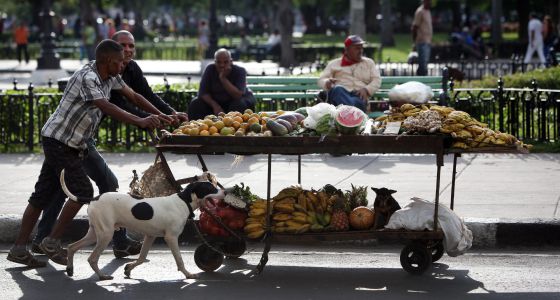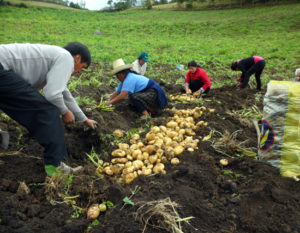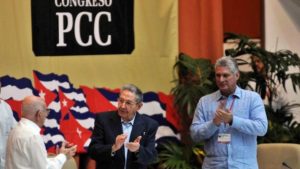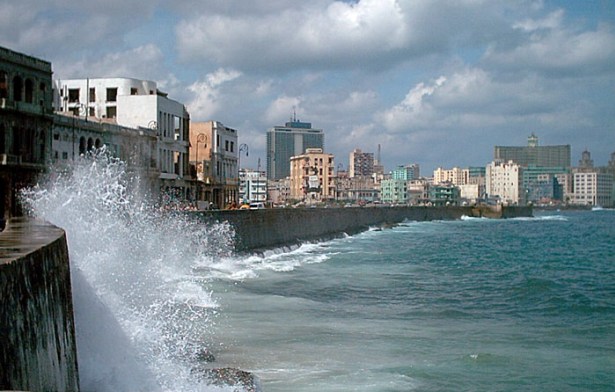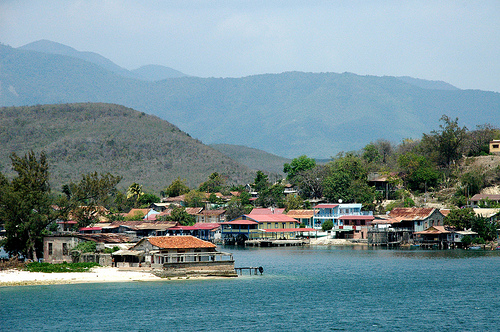The political transition in Cuba will be effective only if it is accompanied by an economic transformation that will allow the island to find a new space in the world, more open to trade and investment, Ecuadoran internationalist Esteban Santos told Sputnik.
“This new Cuban process has to come from a modernization process on the economic issue, because if that is a chaos, it is difficult for a regime, whatever it may come to, to maintain itself,” said Santos, a professor of Political Science and International Relations of the University of the Americas.
Santos observed that what is lived in Cuba “are not elections and nobody takes it by surprise” that, “but it is a transition of power, a delivery of a legacy.”
“The guideline that the Cubans are going to have to face is: either I re-isolate myself from the planet or start giving these important changes so that investments can be made and there can be a Cuban economy,” added Santos.
That is why, in his opinion, the legacy can not survive only with political discourse and therefore it is necessary to look at this new reality with “pragmatic eyes” to achieve “that people want to come and do business in that country.”
According to the analyst, Cuba must “adapt to new needs and commercial challenges or prepare for failure,” especially because the new generations of Cubans will “demand” their rulers “adapt to the world,” he said.
Santos acknowledged Cuba’s first attempt to open itself to the world through tourism, but considered it fundamental to develop the rights to private property, freedom of expression and also “freedom of association,” but this “is not going to happen if there is no clear opening to trade. ”
“Cuba has a historical right to choose between opening up to the world or re-closing and entering an airtight regime, but we have already lived for decades,” he said.
AN IMPOSSIBLE PROCESS OF TRIUMPH.
On the 4th of this month, the authorities began the nomination process for candidates to join the municipal assemblies, which will be held on October 22 and is the first step in a process that will culminate next year, when the parliament elects the President Castro, who has formally ruled since 2008.
Thus, the lights of the “revolution” have been fading along with them “because the regime did not allow new figures to be born, and the new figures that appear are not born with pedigree, they are not born with any surname posture,” he argued.
The process of election of authorities, led by the ruling Communist Party of Cuba, has been in force on the island since the mid-1970s and will culminate in five months with the election of a National Assembly (unicameral parliament), which will elect Council of State and its president, who will replace Castro in February 2018.
A Transition Process that will come as no surprise, Santos said.
(OPINIÓN) SIN UN CAMBIO ECONÓMICO EN CUBA NO HAY TRANSICIÓN POSIBLE.
La transición política en Cuba será efectiva solo si viene acompañada de una transformación económica que permita a la isla encontrar un nuevo espacio en el mundo, más abierto al comercio y la inversión, dijo a Sputnik el internacionalista ecuatoriano Esteban Santos.
“Este nuevo proceso cubano tiene que venir de la mano de un proceso de modernización en el tema económico, porque si eso es un caos, es difícil que un régimen, cualquiera que venga, pueda mantenerse”, dijo Santos, docente de Ciencias Políticas y Relaciones Internacionales de la Universidad de las Américas.
Santos observó que lo que se vive en Cuba “no son elecciones y a nadie lo toma por sorpresa” aquello, “sino que es una transición de poder, una entrega de un legado”.
“La directriz a la que los cubanos se van a tener que enfrentar es: o me vuelvo a aislar del planeta o empiezo a dar estos cambios importantes para que puedan darse inversiones y para que pueda haber una economía cubana”, agregó Santos.
Es por eso que, en su opinión, el legado no podrá sobrevivir únicamente con el discurso político y por ello es necesario mirar esta nueva realidad con “ojos pragmáticos” para lograr “que la gente quiera venir y hacer negocios en ese país”.
Para el analista, Cuba debe acoplarse “a las nuevas necesidades y retos comerciales o se prepara para el fracaso”, especialmente porque las nuevas generaciones de cubanos “exigirán” a sus gobernantes “adaptarse al mundo”, estimó.
Santos reconoció un primer intento de Cuba de abrirse al mundo a través del turismo, pero consideró fundamental desarrollar los derechos a la propiedad privada, a la libertad de expresión y también “a la libertad de asociación”, pero esto “no se va a dar si no hay una apertura clara al comercio”.
“Cuba tiene un derecho histórico de escoger entre abrirse al mundo o volverse a cerrar y entrar en un régimen hermético, pero eso ya lo hemos vivido durante varias décadas”, observó.
UN PROCESO IMPOSIBLE DE TRIUNFAR.
El 4 de este mes las autoridades dieron inicio al proceso de nominación de candidatos a integrar las asambleas municipales, cuya elección se realizará el 22 de octubre y es el primer paso de un proceso que culminará el año próximo, cuando el parlamento elija al relevo del presidente Castro, quien gobierna formalmente desde 2008.
Así, las luces de la “revolución” se han ido desvaneciendo junto con ellos “porque el régimen no permitió que nazcan nuevas figuras, y las nuevas figuras que aparezcan no nacen con pedigrí, no nacen con ninguna postura de apellido”, argumentó.
El proceso de elección de autoridades, que conduce el gobernante Partido Comunista de Cuba, rige en la isla desde mediados de la década de 1970 y culminará en cinco meses con la elección de una Asamblea Nacional (parlamento unicameral), que elegirá a su vez al Consejo de Estado y a su presidente, quien sustituirá a Castro en febrero de 2018.
Un Proceso de Transición que no será sorpresa alguna, observó Santos.
Agencies/Sputnik, Ecuador (Análisis/Opinión)/ Internet Photos/ Arnoldo Varona/ TheCubanHistory.com
THE CUBAN HISTORY, HOLLYWOOD.



